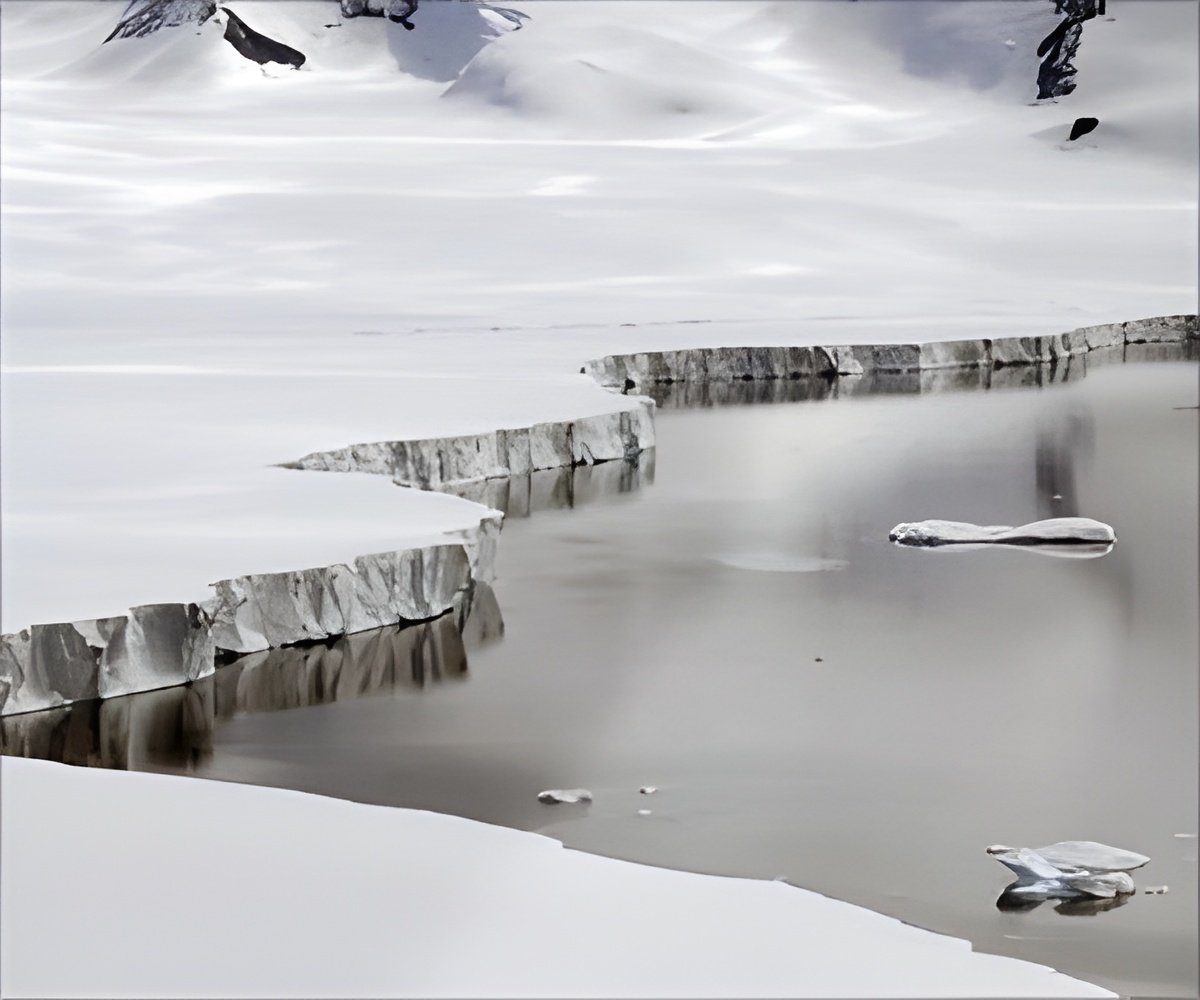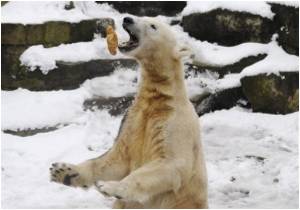With adequate food sources available, snow geese are known to endure polar bear egg predation without detrimental effects to the population.

Previous studies have predicted mass polar bear starvation by 2068, when the annual ice breakup is expected to separate the bears from their sea-ice hunting grounds for a consecutive 180 days each year, creating ice-free seasons that will last two months longer than they did in the 1980s. However, those estimates assumed no energetic input from land food sources.
The researchers computed the energy required to offset any increased starvation and then determined the caloric value of snow geese, their eggs, and caribou that live near the coast of the Western Hudson Bay. Their findings suggest that there likely are more than enough calories available on land to feed hungry polar bears during the lengthening ice-free seasons.
The researchers said, "Although the exact energetic cost for a bear to hunt geese and caribou is uncertain, polar bears in Manitoba have been reported ambushing caribou with the same energetically low-cost techniques they typically use to hunt seals. The similar size of these two prey species means that bears would need to hunt for caribou only as often as they would usually hunt for seals."
Rockwell said, "If caribou herds continue to forage near the coast of Western Hudson Bay when bears come to shore earlier each year, they are likely to become a crucial component of the bears' summertime diet. The eggs of snow geese are another food source for bears, and the energetic cost of obtaining eggs in ground nests is exceedingly low. With adequate food sources available, snow geese are known to endure polar bear egg predation without detrimental effects to the population."
The findings appeared in PLOS ONE.
Advertisement









